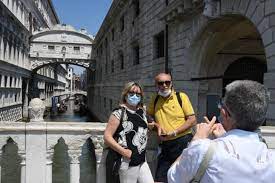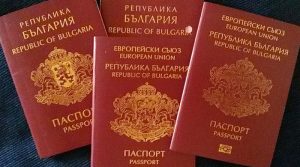Should you travel from UK to Italy on holiday this summer?

Rome: Italy has dropped most restrictions on UK tourists, while the country remains on the British government’s ‘amber list’ for travel. Where does that leave holidaymakers who want to visit Italy this summer?
Italy last month scrapped its coronavirus quarantine requirement for UK travellers in time for the summer holiday season.
Now, arrivals only need to provide a negative test result (find out more about testing for travel to Italy here).
And so far, Italy hasn’t announced any new travel restrictions due to the more-transmissible Delta variant of coronavirus, as Austria, France and Germany have done.
On June 2nd, ambassadors from EU member states agreed in principle that it was too early to add the UK to the list of countries from where non-essential travel, such as tourism, is allowed, due to ongoing concerns about the rise of the Delta variant.
But there has been no indication so far that this will influence the Italian government’s rules on travel from the UK.
So it’s clear that Italy is allowing British tourists to visit, at least for now – however the UK’s rules on visiting Italy are less straightforward.
British authorities continue to advise against travel to Italy and other countries on the ‘amber list’, without actually forbidding it.
Italy was not included when Boris Johnson’s government on June 3rd announced the latest update to the ‘green list’ for travel.
The UK Foreign Office still “advises against all but essential travel to the whole of Italy based on the current assessment of COVID-19 risks” in its latest update on June 3rd.
But this is advice, and not a strict rule, which has left many people confused about whether or not they can – or should – travel. What are the UK’s ‘amber list’ restrictions?
The ‘amber list’ designation is not a travel ban, so Britons would be able to travel to Italy this summer without breaking the law.
However, they have to keep in mind that they’re being advised against it by UK authorities, and that Italy’s amber classification will likely invalidate most travel insurance if their flights are cancelled or they need to go to hospital with Covid-19.
And it means they are legally obliged to spend ten days in quarantine and take three PCR tests upon their return to the UK – a requirement which looks likely to stay if Italy remains in the amber travel category.
When announcing its update to the traffic-light system on Thursday, the UK government stated: “While the number of ‘green list’ destinations remains low, the government is urging the public not to travel to amber classified destinations to play their role in protecting public health.”
“This is due to the prevalence of variants of concern and general rates of coronavirus being greater in amber destinations, meaning the risk to public health is also greater.”
Boris Johnson said back in May: “I think it’s very important for people to grasp what an amber list country is: it is not somewhere where you should be going on holiday, let me be very clear about that.”
Of course, many people have other, more urgent reasons to travel abroad, such as for work or to visit family abroad – though no allowances have been made for anyone who needs to travel from the UK to Italy for those reasons.
\
Italy’s health situation has been steadily improving and the country’s numbers of new Covid-19 cases and deaths are now at a seven-month low.
Italy’s R number (reproduction rate), which shows how fast the virus is spreading, is currently around half that recorded in the UK.
The Italian ambassador to the UK also insisted on Wednesday that Italy was a safe country to visit and that it should be on the green list, saying it had a “high percentage” of the population fully vaccinated against Covid-19 and should have the “majority” immunised by the end of June.
Some 21 percent of the Italian population is fully vaccinated, compared to the UK’s 38 percent. While Italy’s improving health data means many of the country’s Covid restrictions have now been lifted, some rules remain in place – including an evening curfew and the requirement to wear masks at all times in public, indoors and outdoors.
At this point, the UK’s ongoing restrictions might be more likely to deter holidaymakers than those put in place by Italy.





